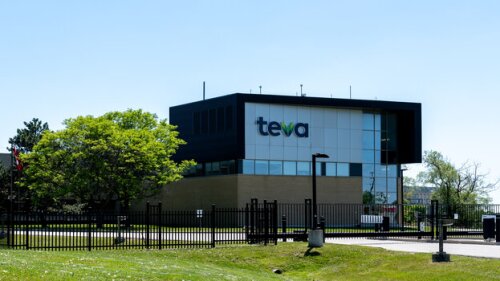News
During the COVID-19 pandemic, Health Secretary Robert F. Kennedy Jr.—along with FDA Commissioner Marty Makary and CBER Director Vinay Prasad—argued against vaccine mandates, partly because they limited medical choice. This week, the FDA under their leadership approved updated COVID-19 vaccines with restrictions that do the same.
FEATURED STORIES
Analysts reacted positively to the news that uniQure is in alignment with the FDA on an accelerated approval pathway and on target for a Q1 2026 submission for its one-time gene therapy for Huntington’s disease—but patients have been here before.
J&J has a multi-year head start, but Gilead believes it can win market share by delivering a drug with better safety and at least as good efficacy.
Jefferies has predicted more small tuck-in deals to come, as biotechs struggle to access capital despite key clinical milestones on the horizon.
Job Trends
AbbVie announced positive topline results from LEVEL UP, an open-label, efficacy assessor-blinded head-to-head Phase 3b/4 study that evaluated the efficacy and safety of upadacitinib versus dupilumab in adults and adolescents with moderate-to-severe atopic dermatitis who had an inadequate response to systemic therapy or when use of those therapies was inadvisable.
FROM OUR EDITORS
Read our takes on the biggest stories happening in the industry.
After Emma Walmsley steps down as GSK CEO in January, Vertex Pharma’s Reshma Kewalramani will be the sole female CEO at a top-20 pharma company. Still, there are many prominent women in pharma that could someday break through again.
THE LATEST
Bristol Myers Squibb tested Cobenfy as an adjunctive treatment with atypical antipsychotics for schizophrenia in the Phase III ARISE study, which earlier this year failed to demonstrate significant symptom improvement.
For now, Sanofi’s U.S. inventory is insulating the company from a potential 15% tariff on drugs shipped from the EU.
Move over Humira, Skyrizi and Rinvoq are expected to beat the former megablockbuster’s peak sales by the end of this year.
Rumors of Biogen’s disagreements with Eisai have been greatly exaggerated, CEO Chris Viehbacher said during a second quarter earnings call. The partnered Alzheimer’s drug Leqembi saw sales climb 20% for the period.
The announced reduction of hundreds of staff came a day ahead of Moderna’s Q2 earnings report.
While Eli Lilly’s diabetes blockbuster was non-inferior to its older incretin therapy Trulicity in a highly anticipated Phase III cardiovascular outcomes trial, analysts had hoped for statistical significance in reducing major events such as cardiovascular death, heart attack and stroke.
Employed biopharma professionals are highly likely to look for new jobs in the next 12 months, although not quite as likely as their unemployed counterparts, according to a BioSpace LinkedIn poll. Three recruitment experts discuss the findings and what’s driving job searches.
In this episode presented by IQVIA, BioSpace’s head of insights Lori Ellis discusses the concerns and opportunities of patient data driving AI tasks with Louise Molloy, associate director medical information and pharmacovigilance.
Rinvoq’s efficacy in alopecia areata is “impressive,” according to Guggenheim analysts, who said the drug could have a competitive edge over other JAK inhibitors in the space.
Long-term extension data presented at the Alzheimer’s Association International Conference showed amyloid plaque reaccumulation remained slow at up to 2.5 years of follow-up in patients who were taken off of treatment with Eli Lilly’s anti-amyloid antibody.

















